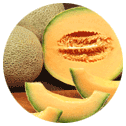 Full List of Fruits
Full List of Fruits  Lemon aspen
Lemon aspen Lemon aspen
![]() Introduction of Lemon aspen fruit
Introduction of Lemon aspen fruit
Scientific name - Acronychia acidula
Yielded as a bush food, Lemon Aspen is a small to medium sized tropical forest tree of the family Rutaceae thatís inhabitant to north Queensland, Australia. This aromatic and acidic fruit is known for its properties. The species Acronychia is a part of the rue family Rutaceae, the same family as the type Citrus which contains true lemons.
With just about 1.5-2.5cm in diameter, the fruits of lemon aspen are pale lemon colored with a rough star shaped center textured much like an apple center. It has a domination of tropical spice characters. With a tip-off of grape fruit, they have a tart lemon taste and works well with Quandongs and Muntries, but it is a must to ensure that you pick them under ripe. 100g of lemon aspen gives the juice, zest and pulp of 6 large lemons approximately. With the core containing small black seeds, it has a spongy flesh.
![]() Nutritional Value of Lemon aspen fruit
Nutritional Value of Lemon aspen fruit
| Amount Per Serving | % Daily Value* |
| Calories | 486 |
| Calories from Fat | 420 |
| Total Fat 46.72g | 71% |
| Carbohydrates 11.67g | 3% |
| Dietary Fiber 3.32g | 13% |
| Saturated Fat 29.3g | 146% |
| Calories 485.84kcal | 24% |
| Cholesterol 122.6mg | 40% |
| Protein 2.73g | 4% |
| Sodium 101.51mg | 4% |
| Calcium | 1% |
| Iron | 0% |
| Vitamin A | 31% |
| Vitamin C | 116% |
Popular in beverages, the fruit has a lime-like and grapefruit flavor which makes them functional in the use of not only beverages, but sauces and confectionaries. Typical use of the fruit includes: sprinkle over pizza, used a dressings and to flavor soft desserts. Noted for its high level of antioxidant activity, they are also used in relishes, chutneys. Best part is that, they are used as a flavoring for mineral water. Spaced out from that, they are added in roasted chicken to add some flavor.
![]() Health Benefits of Lemon aspen fruit
Health Benefits of Lemon aspen fruit
At low concentrations, the fruit induces production of skin cells and these compounds have applications in anti-ageing cosmetics, skin repair & wound healing together with the field of regenerative medication in the long term
 Vitamin C can do good to your skin since it considerably amplifies the synthesis of collagen.
Vitamin C can do good to your skin since it considerably amplifies the synthesis of collagen.
 In turn, the antioxidants help reduce skin damage caused by free radicals.
In turn, the antioxidants help reduce skin damage caused by free radicals.
 Vitamin C when delivered into skin cells is thought to trim down wrinkles and enhance the texture of skin.
Vitamin C when delivered into skin cells is thought to trim down wrinkles and enhance the texture of skin.
Cultivated on the east coast of Australia from North Queensland to northern New South Wales, the tree grows in small-scale commercial bush food orchards. This quick growing tree requires regular pruning to preserve a practical harvesting height. From seedlings, the tree has a fair harvest yield and bears in four years. The tree is best grown in well-drained and productive clay loam soils, with a sun-drenched portion and extra moisture when young.


















